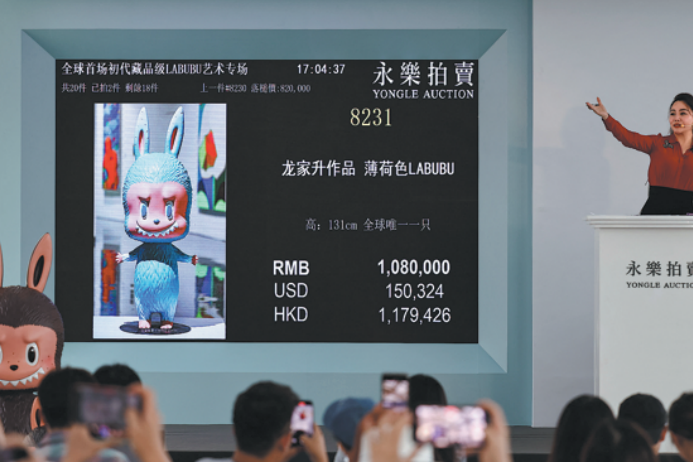Nigeria seeks agriculture investment

| Akinwumi Adesina says investment from China is crucial in modernizing his country's agriculture. Li Xiang / China Daily |
Nation wants to reduce dependence on oil and natural resources
Nigeria, the largest recipient of foreign direct investment in Africa, is looking for greater amounts of investment from China to develop commercial agriculture, even as it presses ahead with steps to reduce its reliance on oil and natural resources for growth.
China's technology in agriculture and food production is "very much needed" and investment from China is crucial for Nigeria to realize its goal of modernizing the agriculture sector and to diversify the country's economy beyond the natural resources industry, Nigerian Minister of Agriculture and Rural Development Akinwumi Adesina said on the sidelines of the onging World Economic Forum in Davos, Switzerland.
"China has exceeded many developed donors in terms of actual investment in Africa. African nations should continue to take advantage of the financing, and scientific and technology assistance provided by China," he said at the six-day annual forum that is due to end on Jan 27.
Nigeria is working with the Chinese biotechnology company Yuan Long Ping High-Tech Agriculture Co Ltd to get access to China's hybrid rice technology to substantially boost domestic food supplies.
The country has also obtained financial loans of $1.2 billion from the Export-Import Bank of China that have allowed it to import large-scale rice production facilities as it aims to be self-sufficient in rice production by 2015, Adesina said.
Nigeria also gained more than $200 million financing from China for the installation of 18 large-scale cassava flour processing plants.
That enabled it to export a total of 2.2 million metric tons of dried cassava chips, worth $136 million, to China last year.
Chinese investments in Nigeria at the end of 2011 stood at $8.4 billion, said the Chinese embassy in Nigeria.
The country also launched an ambitious program called Agricultural Transformation Agenda last year, aiming to upgrade and modernize its agricultural sector and to attract private foreign investment through agricultural deregulation and infrastructure investments.
It managed to attract $8 billion foreign and private local investment for its agricultural business last year.
The transformation plan is expected to add 20 million tons of food to domestic supply and create 3.5 million jobs by 2015, said Adesina.
"Our drive is to take agriculture back to the main stage of the Nigerian economy as it was in 1960s when Nigeria was a major player in the global food markets."
Agriculture makes a major contribution to the Nigerian economy and accounts for 44 percent of its GDP and 70 percent of the employment.
However, some business leaders have warned about the risk of the current armed unrest in Mali destabilizing West Africa, especially for foreign investment.
Sunil Bharti Mittal, chairman and chief executive officer of Indian telecoms firms Bharti Enterprises, said: "From the standpoint of investors and people coming to Africa, I think what is important to see is commitment from the political leadership to secure investment, ensure there are no major fallouts of any terror activities which have recently developed, and, importantly, manage foreign exchange in a manner which does not deliver shocks."
Adesina reiterated that maintaining peace and stability in the region is crucial for African countries to continue attracting foreign investment. But he said that he does not see a slowdown of foreign investment as a result of the unrest in Mali and the recent hostage crisis in Algeria.
lixiang@chinadaily.com.cn
(China Daily 01/25/2013 page3)































